- cross-posted to:
- news@hexbear.net
- cross-posted to:
- news@hexbear.net
Most Russians have never lived as well as they do now. Nor do people believe that things are about to get worse. The fact that Russians are living better is evident from their outgoings. Spending at cafes and restaurants, for example, is increasing.
After the start of the war, inflation rocketed – but wages more than kept pace.
Demand for non-food goods (i.e. items where purchases can be postponed or even canceled) has recovered from its slump in the months after the full-scale invasion of Ukraine in 2022. Its rate of growth now exceeds both inflation, and wage increases.
This does not look like the sort of panic buying that happens in a crisis, when many rush out to buy whatever consumer durables they can afford. Instead, Russians appear to have sufficient confidence in their finances to take out personal loans. Consumer confidence is approaching record levels, Nabiullina told reporters on Friday.
Of course, increased prosperity is not universal. But those who have lost out are the more wealthy Russians. The average income of the richest 10% in Russian society has increased by 27% since the start of the war. While this may seem a lot, it’s the lowest rise of all 10 income groups, and barely matches the combined inflation rate for the past two years. Incomes for the poorest in society have grown much faster.
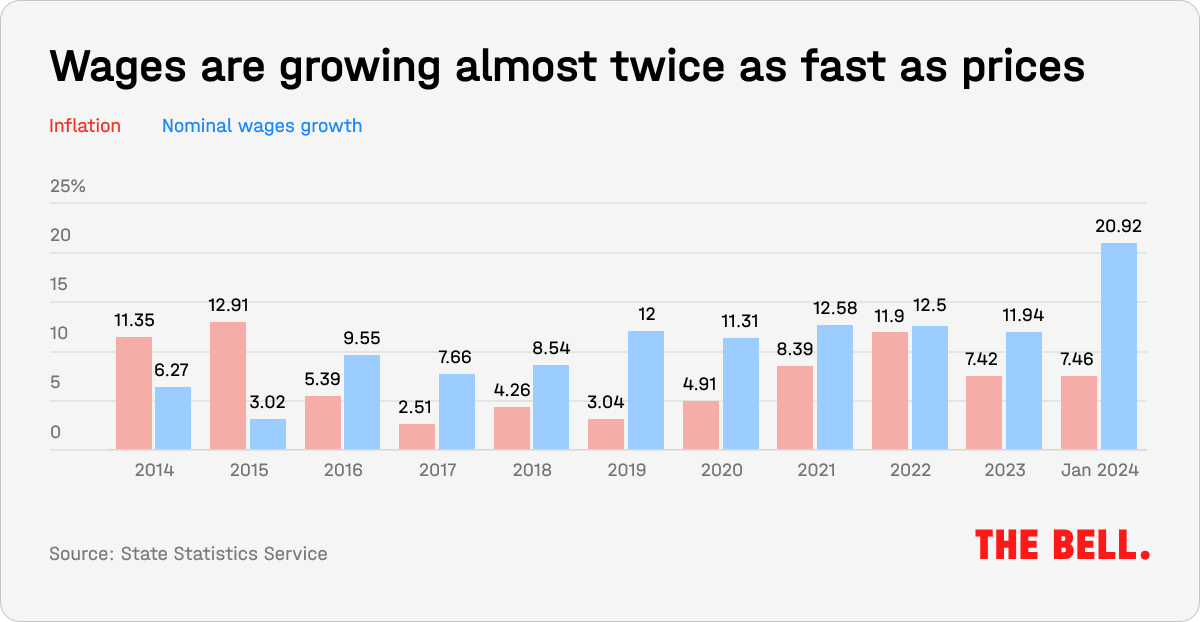
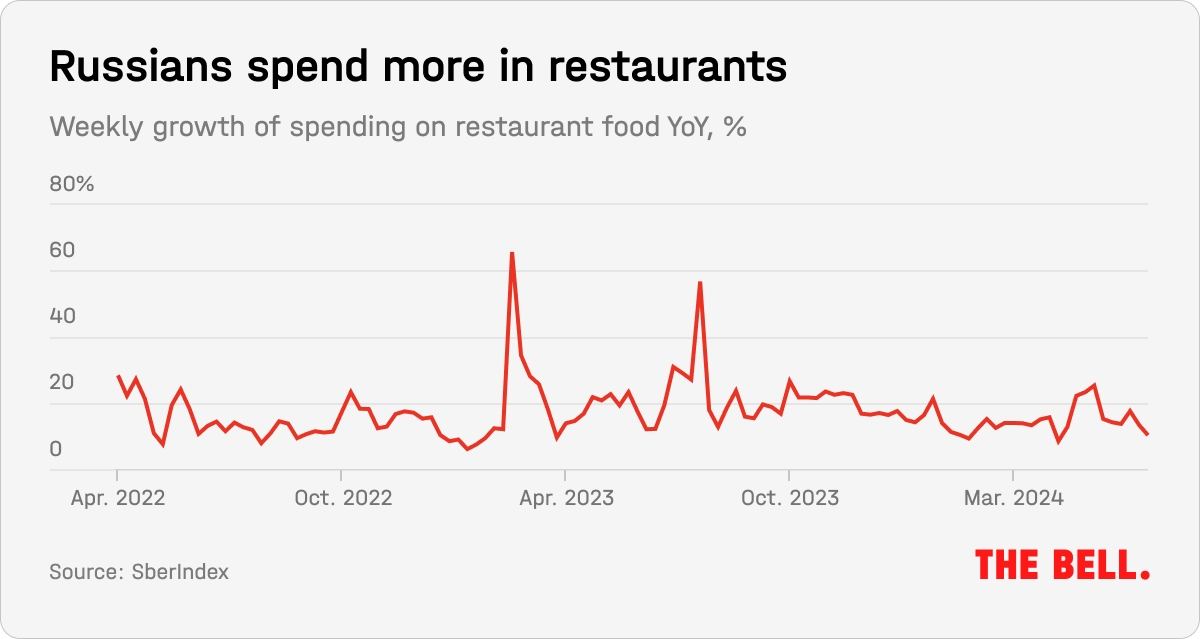
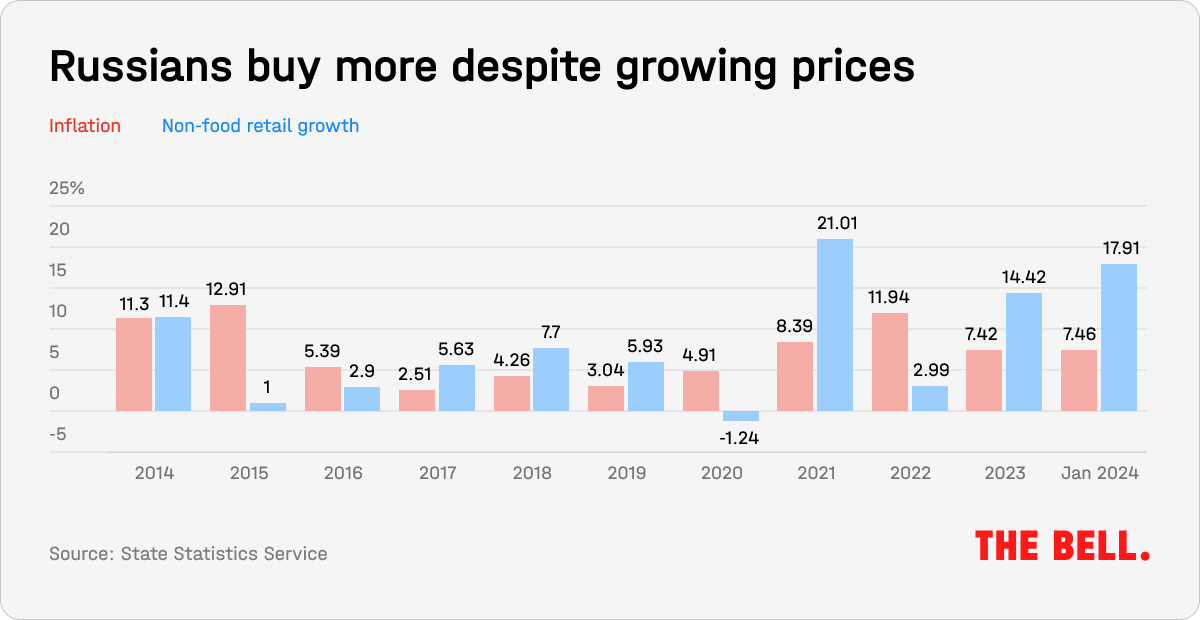
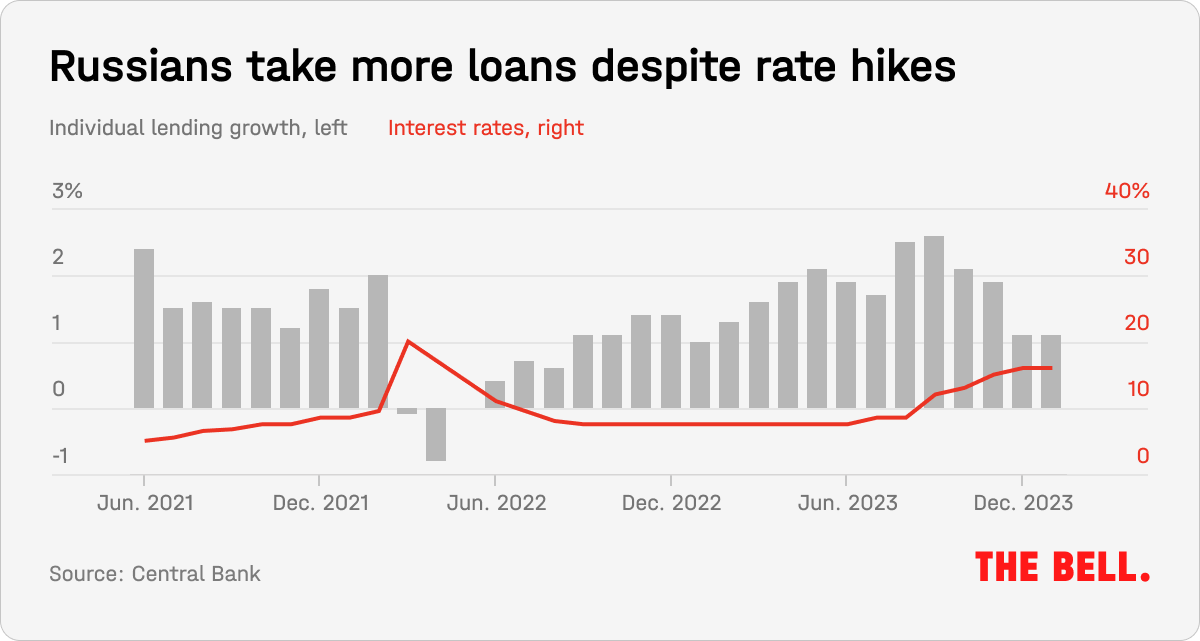
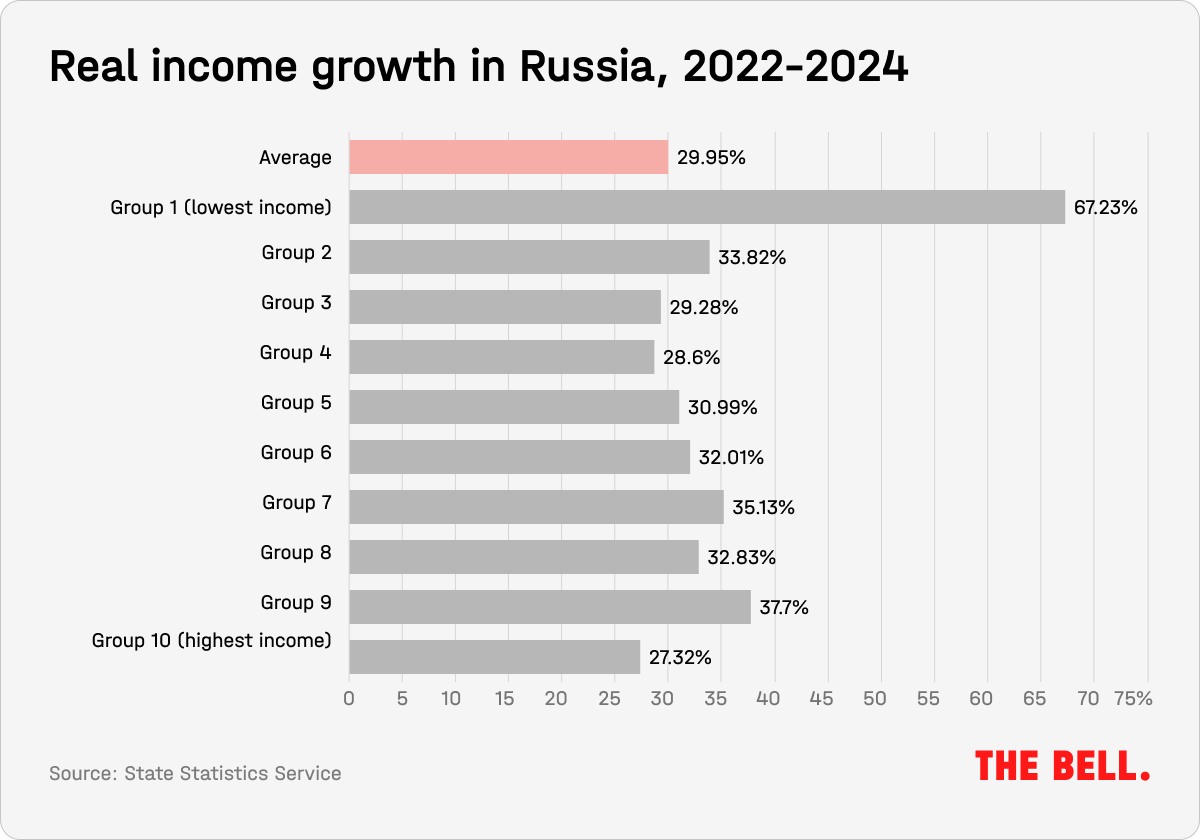


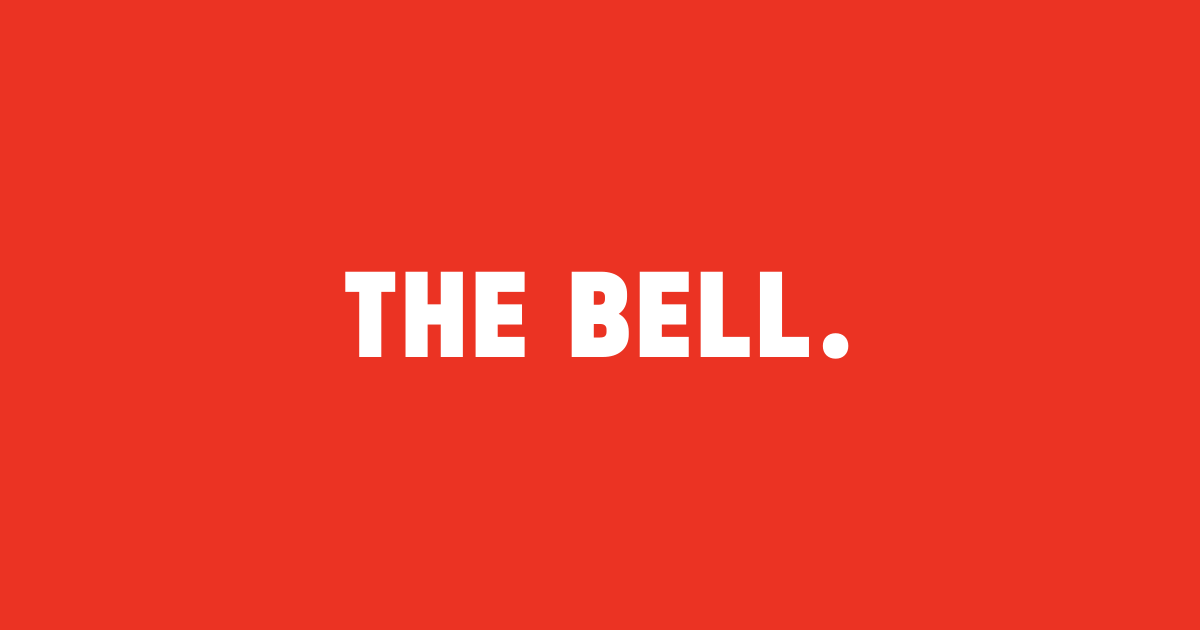
This looks like it’s put out directly by the state. No evidence is presented.
There’s been plenty of discussion of Russian economy by western orgs like the IMF as well, and I don’t see anything contradictory here.
Bloomberg also put out more or less the same thing (https://archive.ph/fAYpB) a week ago if you want a “credible” Western mainstream source.
Even so, it’s not really saying anything different than what you would expect to see. This isn’t outside of the realms of expectations, let alone reality.
Any liberal economy transitioning into a war time economy is going to see a fairly dramatic increase in economic production. You are centralizing and streamlining production capabilities, and you aren’t exactly having to wait for demand.
Any unemployed male is going to be drafted or put to work. Financial systems will be rearranged to better control interest rates. Legislation put in place to control market pricing, enabling them to better control run off inflation.
War is one of the only scenario that will galvanize enough political will for financial self interest to align themselves under the interest of the government. In the few times this has happened in modern history, the results are dramatic. The only real limitation of production becomes the amount of ink you have to print fiat currency.
The real bill only comes home to the table when you transition out of the war time economy, or if you start actually loosing the war to a significant degree.
Imo this is why France started really going agro the last few weeks. The best time to snuff out a combatant’s wartime economy is in the crib. If you let it fully establish itself the only real way to compete with it without going broke is to transition to a wartime economy yourself. Macron doesn’t want to buck the economic status quo, and Russia is forcing their hand.